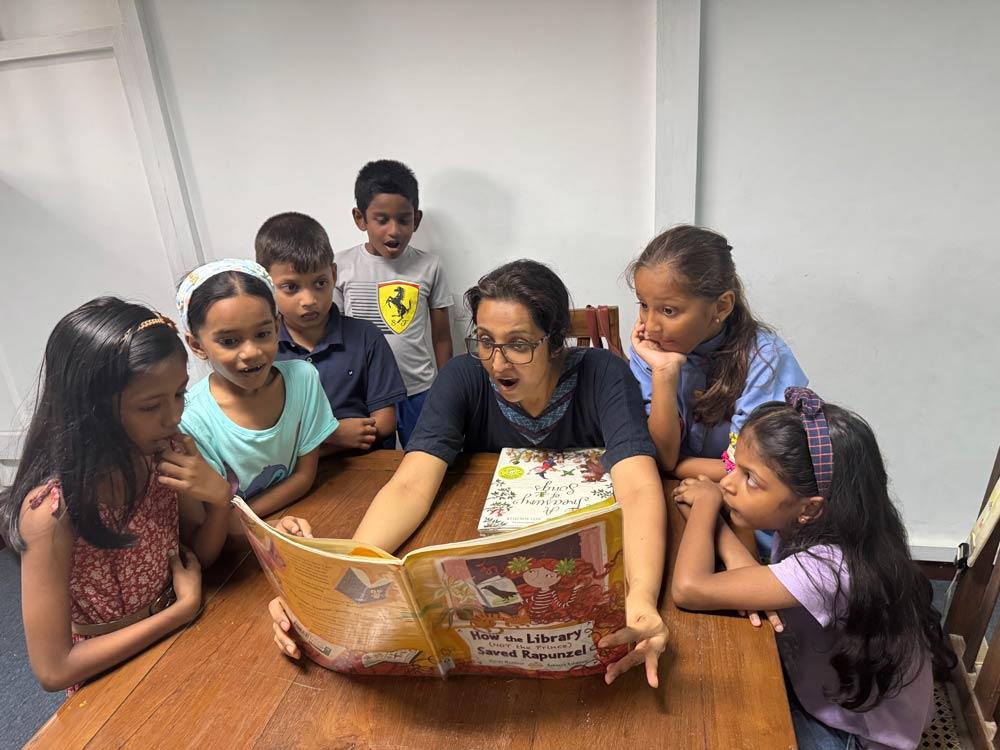
Each October, Teachers’ Day arrives with speeches, flowers, and the exchange of tokens that symbolise gratitude. Yet behind the smiles and carefully wrapped gifts, there lies a more complex reality: the teaching profession, particularly in Sri Lanka, is held up as noble in words but undermined in practice. As a drama teacher, I know the paradox well. In classrooms and rehearsal halls, we cultivate the next generation’s voices, confidence, and imagination. But in staff rooms and policy spaces, we face low pay, overlooked effort, and a culture where respect too often takes the form of temporary gestures rather than systemic support. If Teachers’ Day is to mean more than ceremonial applause, we must look honestly at how teachers are valued, rewarded, and remembered.
The Weight of Passion
Globally, research shows that teaching remains one of the most undervalued professions relative to its impact. The OECD’s Education at a Glance (2023) notes that in many countries, teachers’ salaries lag significantly behind those of similarly educated professionals. In Sri Lanka, salaries for teachers, particularly in the arts and extracurricular fields, remain low compared with the intensity of the workload. Many teachers take on multiple roles, balancing lesson preparation, marking, administration, and pastoral care, often without recognition. Why, then, do so many remain in the profession? The answer is passion. Studies in teacher motivation consistently highlight intrinsic drivers: the joy of seeing a child learn, the satisfaction of shaping futures, the moral calling to educate. These are not minor motivators—they are the glue holding a fragile system together. Without passion, the profession would collapse under the weight of low pay and limited appreciation.
The Gifting Culture: Symbol or Substitute?
Teachers’ Day in Sri Lanka often centers around tokens; bouquets, hampers, and envelopes discreetly passed. While gratitude is welcome, research on teacher wellbeing suggests that symbolic gestures, though heartfelt, do not address the core issues teachers face. This “gifting culture” can sometimes reinforce bias and partiality. A teacher who receives generous gifts may be perceived as giving more attention to those students, whether or not the perception is true. Families who cannot afford gifts may feel sidelined, creating quiet resentments. The real danger is that gratitude becomes transactional, reducing respect to material exchange instead of systemic change.
In contrast, studies on teacher retention show that what matters most to educators is sustained professional respect: fair pay, supportive working conditions, recognition of expertise, and inclusion in decision-making. Gifts fade quickly; structural dignity lasts.
Partiality and Biases in the Classroom
Teachers are often accused of partiality, favouring one child over another, giving more attention to some, overlooking others. Research suggests that bias in education can stem from multiple sources: unconscious preferences, pressure from parents, or institutional expectations. In Sri Lanka, as elsewhere, high-stakes exams and societal hierarchies sometimes magnify these dynamics. For teachers, the struggle is real. We are asked to be fair in environments that are rarely fair themselves. Class sizes are large, resources uneven, and administrative demands relentless. The truth is that most teachers strive for equity, but systemic pressures make perfection impossible. This reality should not lead to blame but to empathy: teachers are human, working within flawed structures.
Passion Amidst Pressure
The most striking fact is that despite these challenges, many teachers continue to give far beyond what is required. A global UNESCO report (2022) highlighted that teachers often spend hours of unpaid time mentoring, guiding, and supporting students outside of official lessons. In Sri Lanka, countless teachers pay for classroom materials out of their own pockets, rehearse with students after hours, and sacrifice family time to mark and prepare. This devotion is not sustained by salary, nor by a once-a-year gift. It is sustained by passion. Every applause, every letter of thanks, every moment of student growth feeds this passion. But passion, though powerful, should not be exploited as a substitute for fair treatment.
Rethinking Teachers’ Day
What would it mean to honour teachers meaningfully on Teachers’ Day? Research and experience suggest three directions:
1. Systemic Respect: Raise teacher salaries to reflect their qualifications and workload. Provide pathways for professional growth, not just ceremonial praise.
2. Cultural Shifts: Replace the gifting culture with genuine gestures of respect—letters, conversations, acts of recognition that value humanity over materialism.
3. Shared Responsibility: Parents, administrators, and policymakers must see teachers not as service providers but as partners in shaping the nation’s future.
True respect is not measured by a gift basket but by the policies we write, the resources we allocate, and the fairness we extend.
A Teacher’s Reflection
For me, as a drama teacher, every performance rehearsal echoes this paradox. On stage, we teach children to embody empathy, fairness, and courage. Yet off stage, teachers themselves navigate bias, financial strain, and undervaluation. The irony is painful but also motivating: if we can model resilience, perhaps our students will create a world where teachers are celebrated not just once a year, but every day through structures of respect.
Conclusion: Teaching Beyond Tokens
Teaching is not a profession driven by wealth or ease. It is a profession rooted in passion, watered by sacrifice, and often overshadowed by neglect. On Teachers’ Day, we must look beyond the flowers and speeches to ask harder questions: Are we paying teachers fairly? Are we reducing bias and building equity? Are we honouring their passion with structures that sustain it? A poem, a gift, a thank-you note; all these are beautiful. But the greatest gift we can give our teachers is respect that endures. Because while passion fuels the profession, only dignity will allow it to thrive.














